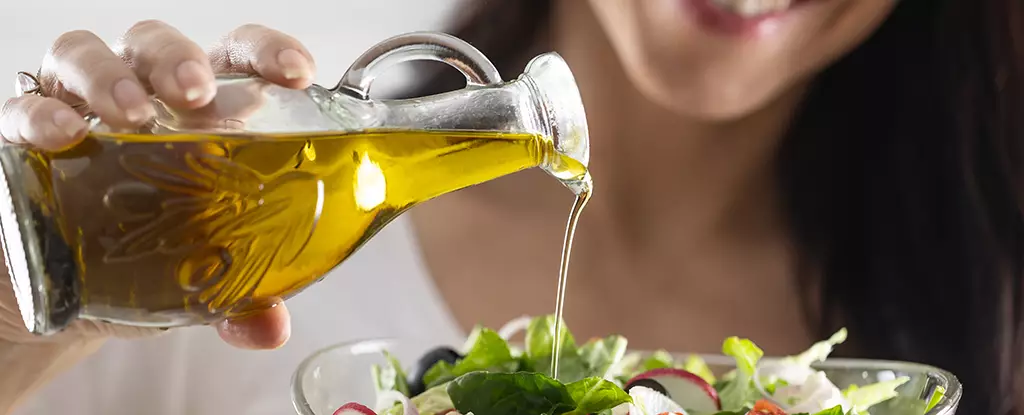Recent research has revealed the profound impact that our diet can have on cancer development and progression. While many studies have explored the relationship between food consumption and health outcomes, the molecular mechanisms underlying these connections are only starting to be uncovered. Scientists are delving into how specific nutrients interact at a cellular level, bringing forth insights that could reshape nutritional guidelines and bolster cancer prevention strategies. The latest findings suggest a compelling correlation between linoleic acid, a prevalent fatty acid in many cooking oils, and aggressive forms of breast cancer, such as triple-negative breast cancer.
Linoleic Acid: A Double-Edged Sword
Linoleic acid, classified as an omega-6 fatty acid, is commonly found in oils from soybeans, sunflowers, and corn. While this essential fatty acid plays crucial roles in maintaining skin health and cellular structure, modern dietary patterns often lead to an excess of omega-6 fatty acids compared to omega-3s, which are critical for reducing inflammation and supporting overall health. Researchers at Weill Cornell Medicine discovered that elevated levels of linoleic acid can activate the mTORC1 pathway—an essential regulator governing cell growth and metabolism—in triple-negative breast cancer cells. This pathway’s activation could facilitate the aggressive nature of this particularly challenging cancer type, indicating that dietary patterns may substantially influence tumor growth.
Direct Connections to Cancer Progression
The study’s findings are alarming yet enlightening: mice exposed to a high linoleic-acid diet developed significantly larger tumors. This preclinical evidence is supported by human studies, where increased levels of linoleic acid and its binding partner, fatty acid-binding protein 5 (FABP5), were found in the blood of patients diagnosed with triple-negative breast cancer. The implications of this research extend beyond mere anecdotal evidence; they provide a biological basis for understanding how dietary components can directly impact malignancy. Dr. John Blenis, a senior author of the study, posits that this discovery enhances our grasp of how specific dietary fats might steer cancer progression, emphasizing the potential for tailored nutritional recommendations for patients.
Rethinking Dietary Guidelines
Despite the compelling nature of these findings, it is essential to approach them with caution. Previous observational studies have indicated no direct link between linoleic acid and overall breast cancer risk in the general population, suggesting that dietary fat’s effects may be more nuanced and dependent on specific cancer subtypes or genetic factors. For instance, a recent meta-analysis encompassing over 350,000 women concluded that linoleic acid intake did not meaningfully affect breast cancer risk. These discrepancies underline the necessity of contextualizing dietary data within the broader landscape of individual health constructs, genetic predispositions, and lifestyle elements.
Media Narratives and Public Perception
Media representations of scientific findings can often lead to oversimplifications that fuel public anxiety. The recent study on linoleic acid’s link to cancer progression has sparked renewed debates over dietary fats. While the research identifies a potential mechanism, it falls short of establishing causation between cooking oils and cancer. Other contributing factors—genetic makeup, the diversity of diet, and environmental influences—must also be acknowledged to provide a more comprehensive view. Thus, blanket avoidance of seed oils may not be warranted; moderation and conscientious selection of fat sources might be more beneficial strategies for those at risk.
Shifting Towards Healthier Options
The message for health-conscious individuals is clear: optimizing dietary choices can play a pivotal role in cancer risk management. Oils like olive oil, which boasts lower levels of linoleic acid and higher concentrations of monounsaturated fats, could offer healthier alternatives for high-temperature cooking. Furthermore, incorporating more fruits, vegetables, whole grains, and nuts aligns with research supporting their positive correlation with healthy aging. A study tracking over 100,000 participants for three decades highlighted that less than 10% of respondents achieved optimal health—a stark reminder of the importance of holistic dietary patterns for cancer prevention.
The Bigger Picture: A Balanced Approach to Nutrition
Organizations like the World Cancer Research Fund emphasize that the broader dietary landscape, rather than individual fats, significantly influences cancer risk. While linoleic acid’s role within triple-negative breast cancer represents a crucial piece of the puzzle, it is essential to contextualize it within a balanced diet rich in whole foods. The evolution of dietary recommendations will hinge on advancing our understanding of these complex relationships while promoting a holistic view of nutrition that empowers individuals with the knowledge and tools to make informed choices.

